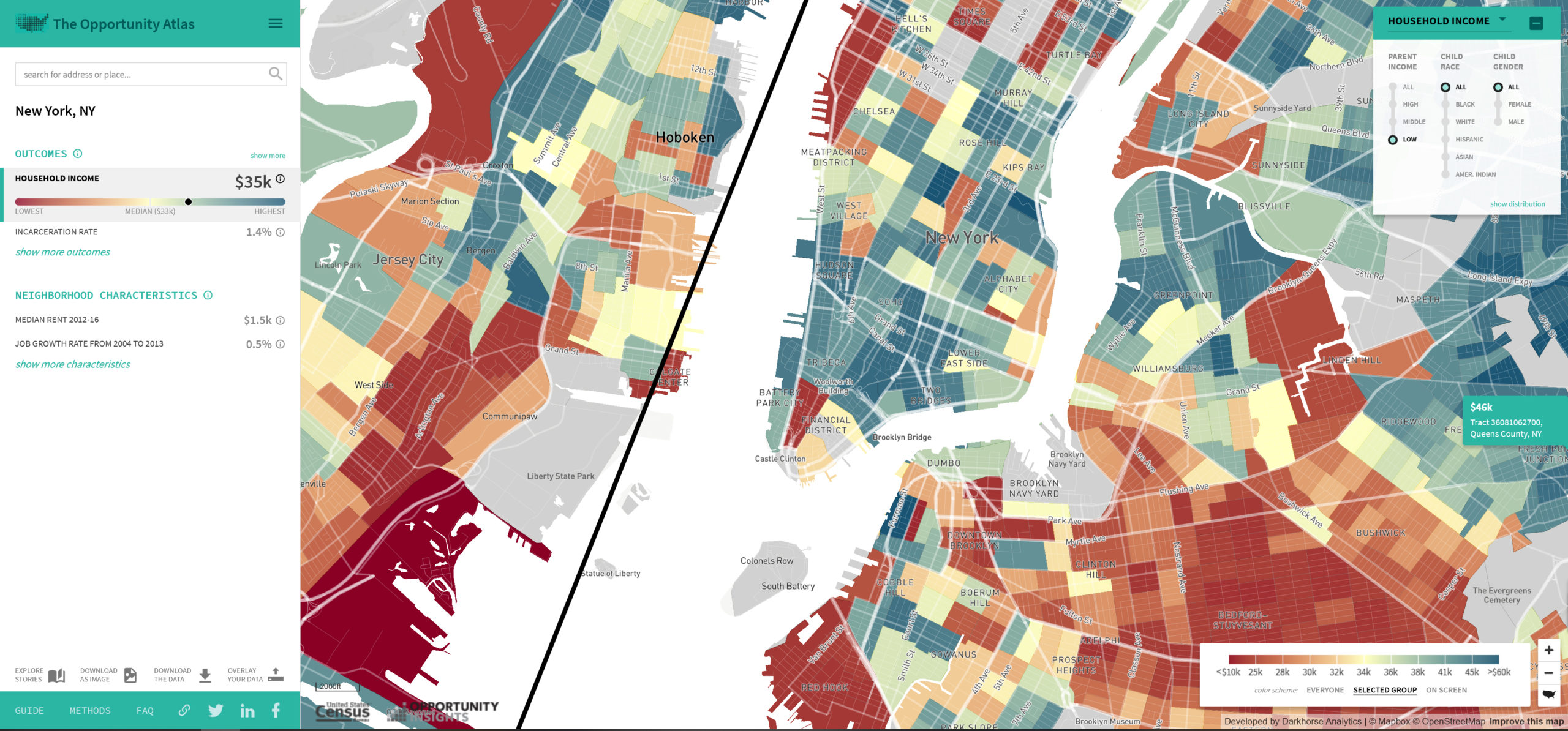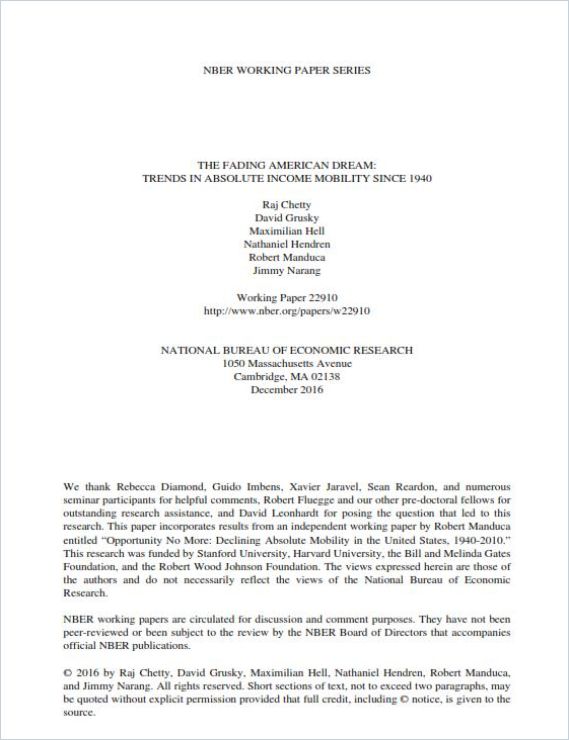How to Fix the American Dream

Although only 40, Nadarajan “Raj” Chetty is – according to his fellow Harvard colleagues – already a candidate for the Nobel Prize. He caused a sensation for the first time in 2014, when a team of researchers led by him was able to prove, with the help of big data of historically unparalleled depth, that the chances of advancing economically in the USA – or to be more precise: of earning more in life than one’s own parents – became smaller and smaller over the decades. Chetty and his team stated in The Fading of the American Dream that absolute income mobility dropped from 92% for those born in 1940 to 50% for those born in 1984. The report shocked an entire country. And Chetty’s name is still associated with this shock today because he proved wrong what a whole nation was taught to believe is indisputably right.
According to his new research on the causes of the drop in opportunities in the “land of opportunity”, there are basically three factors that predefine whether you belong to the one half or the other: 1) Where you were born. 2) What your education level is. 3) What race you are.
Aye, nothing of this sort was intended to prevent Americans from their “pursuit of happiness”. At least when it comes to the clarified ideals in the American Declaration of Independence back in 1776. So what can one do to deal with the current flaw? Chetty’s answer: Take a second look at the data! On Opportunity Insights, he and his team publish and visualize their current research. The Opportunity Atlas is particularly impressive: What starts out as a large map of the USA – and initially confirms the suspected large-scale differences when it comes to opportunities and economic development (such as the popular “Rust-Belt vs. Bay Area”-bias) – unfolds its true power as the zoom factor increases. The opportunities available to a person in the United States do not only depend geographically on states, regions or even cities (as the Economic Innovation Group previously suggested), but on city districts or even blocks: Whether it’s income, innovation or health, and life expectancy, the decisive factor for most characteristics of a good life is not only ability and stamina, but the immediate neighborhood, maybe even the tiny section of a street where you live. On PBS, Chetty recently highlighted the opportunities that come with the right way of reading this map and the underlying data, when he said:
“The answer in terms of restoring the American Dream is not about going back to a previous era or looking at a completely different set of countries. It’s often about looking two miles down the road and figuring out what’s going on there and how you can replicate that.”
That is good news! Because the findings suggest that even the decline of the American Dream won’t turn into a nightmare if US-citizens, no matter if blue-collar workers, entrepreneurs, scientists or politicians, draw the right conclusions as they try to make a difference and improve the status quo. On Vox, Chetty explained: “We’re increasingly learning that the way you implement things really matters. The details really matter. It’s not just about the dollars you allocate to a program, but who was implementing the program. In the context of education, who are the teachers in the classroom, who’s actually providing the service, and how motivated are they? Are they really invested in seeing success? I think one of the challenges as we expand these policies is not the conventional debate about how many dollars do we allocate to bucket X or bucket Y, but rather how we maintain fidelity to the original goals of the program as we achieve scale.”
In his presentation at the National Academy of Sciences, he gave some more insights on how to improve the equality of opportunity according to his research:
This example is just one of many when it comes to the data-driven transformation of economics. Raj Chetty, Esther Duflo, Joshua Angrist – these are just a few of the names that drive the so-called “credibility revolution”, which liberates the economy from politics. Ironically, that happens by putting the latter in new (and sometimes unpleasant) situations of acting on the basis of data instead of models and/or ideology. This transformation is already reflected within getAbstract’s library – especially when it comes to the summaries on inequality or to our channels such as The Role of Government in Economics.






